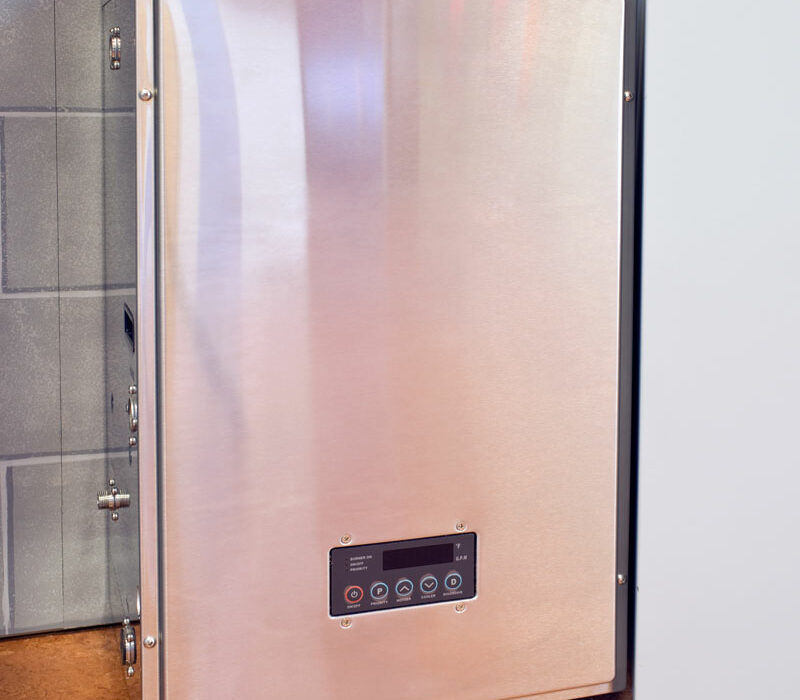
A residential tankless water heater costs more upfront but saves on electricity or gas use in the long run. Multiple tankless heaters also protect against hot water shortages during high usage.
The second-largest expense in an average home is the water heater. According to Energy.gov, the average household spends $400 to $600 each year heating water, which accounts for 14-18 percent of energy bills.
In addition, the average water heater only lasts 10-15 years. A longer-lasting, cheaper alternative is on the market: tankless, or on-demand, water heaters.
A tankless heats water only when in demand. No energy is expended heating — and reheating — water in anticipation of use. A tap must be turned on somewhere in the house demanding hot water before it kicks into action.
Tankless water heaters warm the water directly, using either gas or electric elements. The water is not stored in a tank. Direct heating allows for a consistent quantity of hot water for the entire length of a shower, load of laundry, or dishwasher cycle.
Life span is another big plus of going tankless. The average tankless water heater can last 20 years or longer. Parts are easy to find and replace and can greatly extend the life of a tankless water heater.
One con of a tankless water heater: It limits flow rates.
According to Energy.gov, on-demand water heaters provide about 2-5 gallons of water a minute. If a shower and a dishwasher are going at the same time, a gas-fired tankless water heater struggles to keep up.
The answer, according to Energy.gov, is to set up multiple tankless water heaters and combine them side by side to meet multiple demands. Homeowners can also install separate tankless water heaters for different appliances.
Some buyers will consider upfront costs a strike against the tankless alternative. Tankless heaters range from $800 to $1,000, while normal storage tank models are $300 to $480. Tankless gas models also have higher installation costs because of electrical outlets, improved gas pipes, and an advanced ventilation system. Long term, however, is where users find savings.
Tankless heaters are 24-34 percent more energy-efficient for homes that use 41 gallons or less of daily hot water. They are 8-14 percent more efficient for homes that use 86 gallons every day. A household with multiple tankless heaters can achieve 27-50 percent in energy savings.
Before making the big decision, first consider the size you need, how it will be powered (gas or electric), energy-efficiency ratings, and overall costs both short term and long term.










